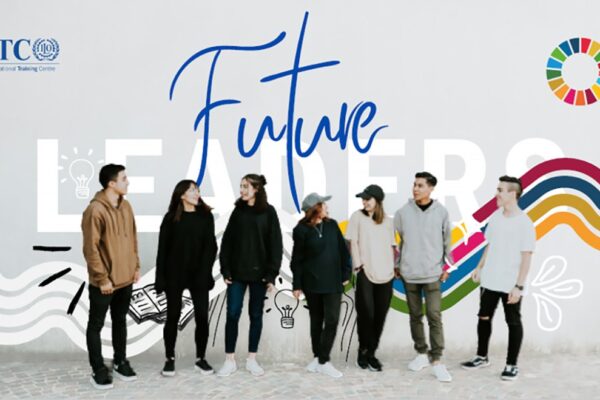
Anastasiia Pavlova, the South-South Partnerships Officer, delivered an insightful presentation on “Green Jobs, Climate Change, Job Creation, and Just Transitions” during a CLIMATE CHANGE ELECTIVE session of the “Future Leaders in the World of Work, South-South University” course. Her presentation focused on the critical role of South-South cooperation in advancing green jobs and facilitating just transitions to address climate change.
Pavlova explained that green jobs contribute significantly to environmental goals such as climate change adaptation, disaster risk reduction, environmental rehabilitation, ecosystem restoration, and nature conservation. These jobs are inherently labour-intensive and are crucial for tackling various environmental challenges.
She highlighted South-South and Triangular Cooperation (SSTC) as a vital instrument for knowledge sharing and peer-to-peer learning among Global South countries. The 2023 e-learning course on promoting green infrastructure investments among South and East African countries exemplifies how SSTC methodologies can be leveraged to share knowledge and best practices on green works.
Emphasizing the interconnectedness of employment, environmental sustainability, and social development, Pavlova discussed how just transitions ensure that the shift towards a green economy is inclusive and equitable. She underscored the necessity of collaboration among national governments, local authorities, the private sector, NGOs, and community-based organizations.
The presentation stressed the importance of localizing the decent work agenda to address climate change effectively. Pavlova highlighted innovation, adaptability, replicability, and sustainability as crucial aspects of South-South cooperation practices, particularly in the context of city-to-city and regional collaborations.
Pavlova shared various successful SSTC initiatives, including social protection in response to climate-induced disasters, employment-intensive investment programs, skills development for green jobs and green entrepreneurship, and promoting fair transitions in labor markets.
She outlined strategic themes for future cooperation, such as establishing regional knowledge bases on productivity and innovation, supporting enterprise development and labor market adjustments, promoting green job opportunities in water ecosystems and livelihoods, and enhancing MSMEs in value chains within the manufacturing and agricultural sectors.
Pavlova also outlined a roadmap to COP29 and a bridge to COP30, focusing on how South-South cooperation can drive sustainable development and climate change commitments. She emphasized the importance of peer learning, strategic partnerships, and the role of just transitions in achieving the 2030 Agenda for Sustainable Development.
The presentation provided a comprehensive overview of how South-South cooperation can be a powerful tool in creating green jobs and ensuring just transitions to combat climate change. Her insights underscored the significance of collaborative efforts and innovative approaches in building a sustainable and inclusive future. The session was a critical step towards preparing future leaders to tackle global environmental challenges through strategic cooperation and practical solutions.
Click here to check more details about the South-South University.

